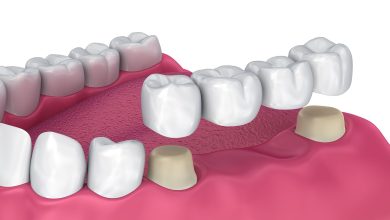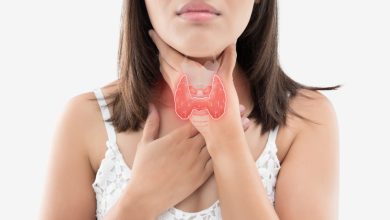Dehydration due to heatstroke may lead to ED

” Heatstroke ” is a concern in the summer, but it is said that it actually causes ED (erectile dysfunction).
On extremely hot or humid days, metabolism tends to be active, and sweating too much outside the body may cause ” dehydration “.
This dehydration caused by heatstroke can lead to ED.
This time, I will explain the mechanism by which dehydration caused by heatstroke causes ED.
What is heatstroke?
Heatstroke is a general term for conditions caused by impaired physical adaptation to a hot environment.
Simply put, it is a general term for various symptoms that occur when the body cannot adapt to a hot environment.
Therefore, any kind of illness caused in the “hot environment” may be a heatstroke.
Normally, people regulate their body temperature by sweating.
However, if you stay in a place with a high temperature or high humidity for a long time, the balance of water and salt in the body will be lost, the thermoregulatory function will not work well, and heat stroke will occur.
Classification of heat stroke
In addition, heatstroke may be classified as follows depending on the pathological condition and coping method.
Classification of heat stroke
- Heatstroke
- Febrile seizure
- Heat exhaustion
- Heatstroke
Although they are called differently, they are all one of the heat strokes.
The severity of heat stroke
It can be divided into the following three stages according to the severity. Degree I (a mild illness that can be dealt with by first aid on site)
Symptoms
- dizzy
- Lightheadedness
- A lot of sweating
- Raw yawn
- syncope
- muscle pain
- Muscle stiffness (leg cramps)
- Numbness in the limbs
- Feeling uncomfortable
- etc …
Grade II (moderate illness requiring transportation to a hospital)
Symptoms
- headache
- nausea
- vomiting
- Malaise
- A feeling of collapse
- Impaired concentration and judgment
- etc …
Grade III (severe illness requiring hospitalization and intensive care)
Symptoms
- Symptoms that develop in degree II
- Disturbance of consciousness
- Cramps
- Movement disorder of limbs
- Hyperthermia
- Liver and renal dysfunction
- Blood coagulation disorder
- etc …
As the symptom progresses as “I degree ⇨ II degree ⇨ III degrees” in the classification, it becomes more severe.
When it progresses to the second or third degree, it often becomes a serious symptom that can lead to a life-threatening situation.
At the very least, it is better to take some measures while the symptoms of heatstroke are grade I.
Places that are prone to heatstroke
It is said that heatstroke is likely to occur in the following places.
Places that are prone to heatstroke
- Places with high temperatures
- High humidity place
- Places with strong sunlight
- Poorly ventilated place
- A place with strong reflection
- A place where the temperature rises sharply
- etc …
Avoid staying in places like the ones above for long periods of time.
Dehydration causes ED
The human body constantly circulates blood with the same osmotic pressure as about 0.9% saline solution.
Human sweat also contains salt (sodium).
If you sweat a lot and drink only water with sodium lost, the sodium concentration in your blood will dilute, and you will not feel like drinking water so as not to lower the sodium concentration.
At the same time, excess water is excreted as urine.
This is called ” spontaneous dehydration “.
Spontaneous dehydration makes it impossible to recover to the amount of fluid before sweating, resulting in decreased exercise capacity and increased body temperature, which causes heat stroke.
And if you are dehydrated, your blood will become muddy and your blood flow will be poor.
Blood flow to various organs of the body deteriorates, so if blood flow to the penis deteriorates, it causes ED.
One of the causes of ED is a lack of blood in the capillaries in the corpus cavernosum.
This is why dehydration triggers an erection.
Originally, ED due to heatstroke is temporary while causing dehydration.
However, because blood becomes muddy, excessive damage to blood vessels can lead to long-term “ organic ED ”.
The effect of ED treatments diminishes under dehydration
In the treatment of ED, dehydration due to heatstroke is a natural enemy.
If you are dehydrated, you may not be able to get enough blood to flow into the corpus cavernosum, so even if you take an ED treatment such as Viagra, it may not be very effective.
In the first place, heatstroke that causes dehydration may not be sexual activity in most cases.
How to avoid dehydration due to heatstroke
Heatstroke is a condition that is difficult to notice, so you may get ED without noticing it.
In the first place, heatstroke itself is a dangerous disease that can be fatal if it becomes severe, so it is worth noting.
To avoid heatstroke, be aware of the following things.
How to prevent dehydration
- Frequent hydration
- Replenish not only water but also salt and sugar
- Avoid the heat anyway
- Building a body that is resistant to heat
Frequent hydration
On hot or humid days, you will sweat slowly, indoors and outdoors.
When dehydration begins, the body does not want much water because it is less likely to feel thirsty.
Even if you don’t feel “thirsty”, try to rehydrate regularly.
It is said that normal temperature water, which is close to body temperature, absorbs better and is more efficient in hydration.
If you don’t need to cool down, it’s a good idea to rehydrate frequently, about 8 times a day.
Replenish not only water but also salt and sugar
Sweat loses salt (sodium) as well as water, so it is recommended to drink drinking water containing sodium, such as sports drinks.
The Japan Sports Association recommends hydration with beverages containing “0.1% to 0.2% salt (sodium: 40mg to 80mg / 100mL)” and “about 4% to 8% sugar” as a measure against heat stroke. ..
In particular, if you exercise for more than an hour, try to rehydrate with salt and sugar.
Avoid the heat anyway
On sunny or hot days, you should refrain from going out as much as possible.
If you really need to go out, wear a parasol or hat to avoid direct sunlight as much as possible.
It is also effective to incorporate sweat-absorbing materials and quick-drying materials into clothing and to incorporate white clothing that reflects heat.
Ideally, you should wear clothes that suppress the absorption of heat from the outside and allow the heat inside the body to escape smoothly.
If you spend your time indoors, use blinds or blinds to block direct sunlight, and use an air conditioner or fan to reduce the temperature and humidity of the room and keep it constant.
In addition, it is also effective to cool the neck, armpits, and base of the thighs with an ice sac to lower the body temperature.
Building a body that is resistant to heat
Building a body that is resistant to heat is also one of the ways to avoid dehydration due to heat stroke.
Get into the habit of sweating with exercises such as walking and running, and gain resistance to the heat.
If you get used to the heat on a regular basis, you should be less likely to suffer from heat stroke.
Beware of winter heat stroke
In fact, heatstroke is not unique to hot days or hot weather.
It can occur not only during the day when the sun is shining, but also on cloudy days, which tend to be humid, at night, and indoors.
Anyone, anytime, anywhere should be careful when the heat inside the body cannot be released well to the outside of the body or when the body cannot be cooled.
Therefore, if the conditions are met, heatstroke may occur even in winter.
Dehydration in winter is hard to notice
In winter, dehydration due to heatstroke is less noticeable than in summer.
The cause is ” dryness “.
In addition to sweat and urine, body fluids (water in the body) also go out by evaporating water from the skin.
In the dry winter season, when the humidity is low, this water evaporation progresses, making it easier to lose fluid.
Also, compared to hot summers, you are less likely to feel thirsty, so you tend to rehydrate less often.
And, in a heated room, the drying progresses, and it becomes easier for the body to lose water.
The more water that goes out of your body and the less water that is replenished inside your body, the more likely you are to run out of fluid.
When that happens, the water in the body is gradually deprived without noticing it, and the blood becomes muddy.
As a result, blood does not reach the capillaries of the corpus cavernosum penis, causing ED.
Summary-Get in the habit of hydrating diligently-
Keep in mind that heatstroke is a disease that can be caused by anyone, anytime, anywhere.
It is important to get into the habit of diligently hydrating to prevent heatstroke.
Especially if you want to prevent ED.
Blood may be muddy even with mild dehydration that does not lead to heatstroke.
Be careful of dehydration so that you don’t damage your blood vessels and cause organic ED.





